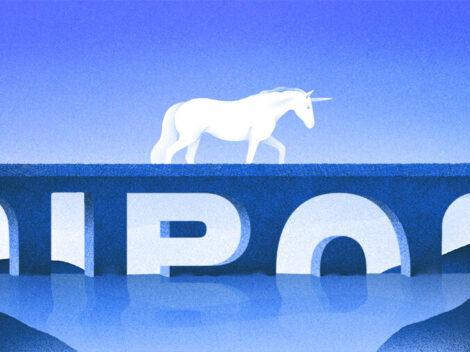Morning Markets: A regular theme of this column is tracking the impact that startups have on incumbents. Here’s some more evidence of just such an effect.
News broke this morning that Charles Schwab will reduce its commissions for online trades to zero. As CNBC notes while reporting the news this morning, the move is part of a trend that has also seen Interactive Brokers and J.P. Morgan Chase reduce trading fees.
Subscribe to the Crunchbase Daily
Shares of Schwab competitors and Schwab itself are down today. This, of course, brings up Robinhood and its platform that charges end-users nothing to trade stocks.
The genius of Robinhood’s early product work was that it took something that could be priced nigh-zero in a digital world (trading) and set its actual price near the marginal cost of the transaction. By excising the margin, the then-startup attracted legions of fans, and, afterward, oceans of capital.
According to its most recent funding round, a $323 million Series E in 2019, Robinhood is worth $7.6 billion today. That’s not to say that its road has been smooth. The company ran afoul of effectively everyone when it tried to launch a savings account that wasn’t; Robinhood has also had reported growth issues, something not uncommon for high-growth startups.
All the same, Robinhood’s pitch to consumers that there was no reason to pay $4.99 or $7.99 or $9.99 just to execute an equity trade worked. Throw in the company’s tools like options and margin products, and Robinhood was offering quite a lot for not too much money. Incumbents had to compete, therefore, on price and features.
Robinhood’s launch was an asteroid impact into the fees-for-trades equity world. Schwab’s move today is the first die-off of a dinosaur revenue stream.
Yet Again
Before I torture that analogy further, let’s remind ourselves of when we last touched on the theme of startups impacting incumbents. In early August we wrote that Green Dot, a publicly-traded banking service, had been repriced by the market by nearly half after it disclosed a diminished future outlook in an earnings report.
Green Dot placed the blame for its smaller revenue and profit expectations on the back of what its CEO described as “so-called neobanks,” the sort of firm like Chime and Acorns that we’ve covered extensively over the years.
In the case of Green Dot, well-funded upstarts were taking parts of the market away. Chime and Acorns et al often have a focus on slim fees, and features. In that way they are similar to Robinhood as we’ve seen above; a market that was too comfortable in its pricing found itself under attack from younger competitors unfocused on short-term profitability.
Consumers tend to win in these situations, even if they don’t switch providers. Schwab customers just got a fee cut, for example, without having to move to a startup platform. I’ve written skeptically (here, here) about Robinhood’s valuation, yes, but I also want to note that its impact on regular folks has so far been positive at least in one way.
There is excess amidst tech startups and other venture-backed companies. There are silly valuations. There are bad actors. But let’s not forget that sometimes startups do have the ability to disrupt pricing regimes that made no sense. As marginal costs fall, so should prices. And quickly.
Illustration: Dom Guzman

Stay up to date with recent funding rounds, acquisitions, and more with the Crunchbase Daily.


![Illustration of remote meet on cellphone, unicorn chess piece and money. [Dom Guzman]](https://news.crunchbase.com/wp-content/uploads/business-strategy-470x352.jpg)








67.1K Followers